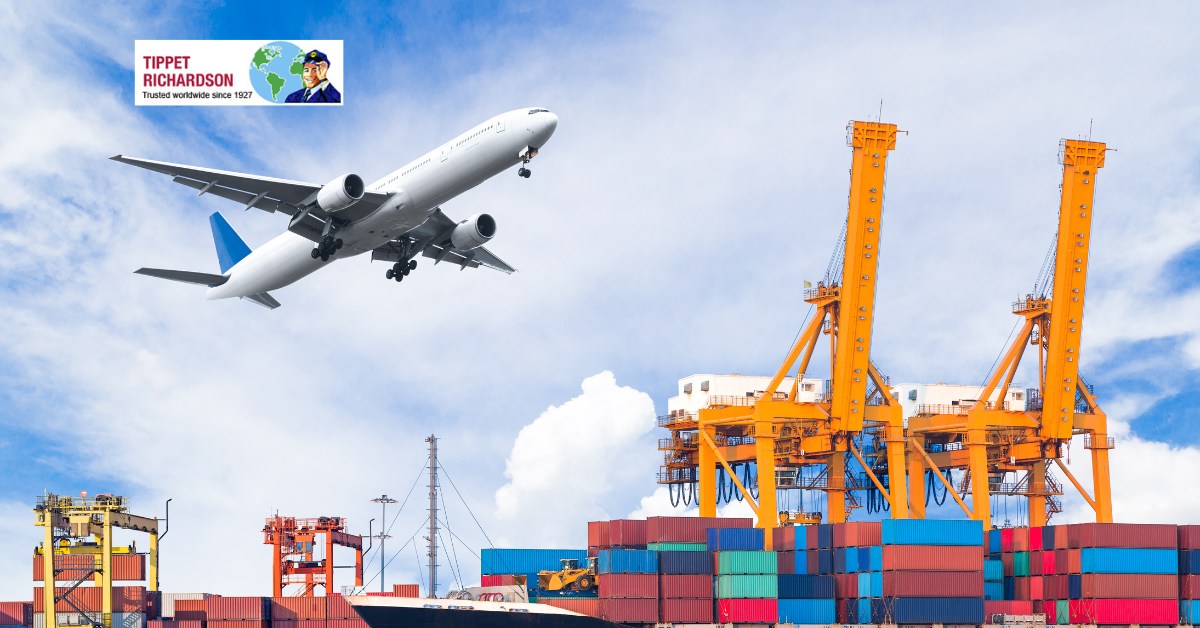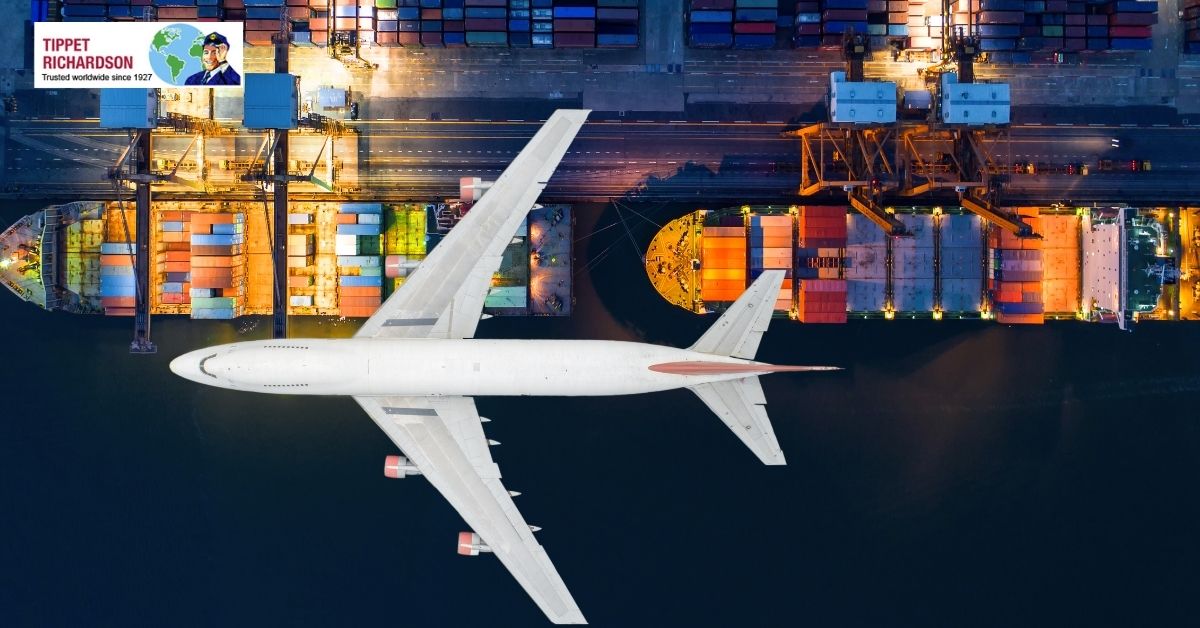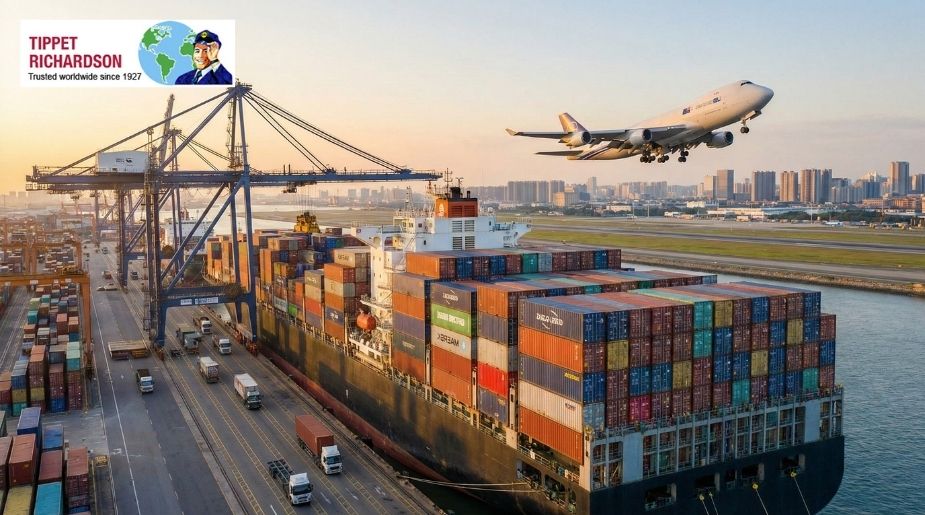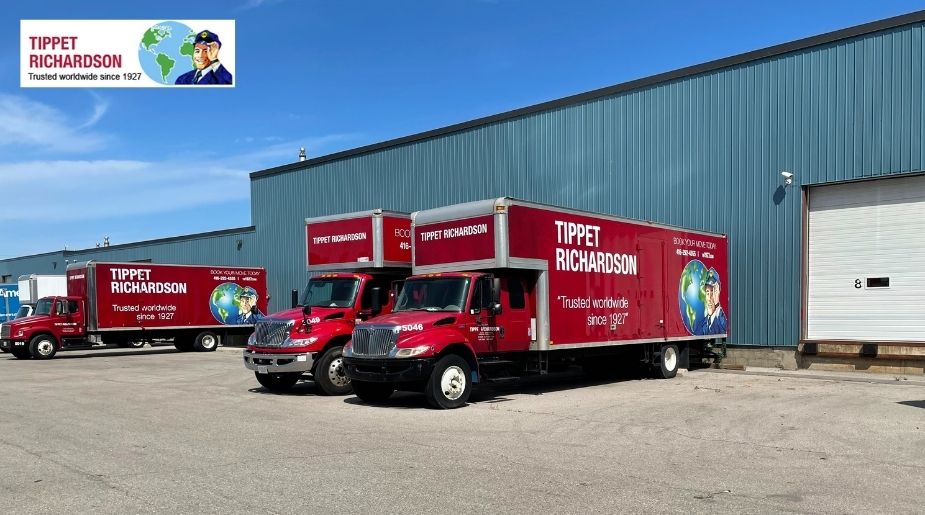Moving to a new country is an exciting yet complex journey. It involves careful planning, organization, and adherence to international regulations. Without a structured approach, the process can quickly become stressful and overwhelming. From securing the necessary documents to packing efficiently, every step requires attention to detail.
For those relocating from Toronto, partnering with an experienced moving company can make all the difference. Tippet Richardson, with its decades of expertise, specializes in international moving solutions that streamline the transition. Understanding the process in advance helps prevent unexpected delays and ensures a hassle-free experience.
Read Also: A Comprehensive Guide to Moving to the UK from Canada
Understanding International Moving Requirements
International moving is more than just shipping belongings across borders. Each country has unique immigration policies, customs regulations, and import restrictions. Proper research and preparation are essential to avoid complications, additional expenses, or legal issues upon arrival.
Researching Destination Country Regulations
Different countries have distinct entry requirements and restrictions on what can be brought in. Understanding these regulations in advance helps prevent costly delays and ensures compliance with local laws. Some nations require visas or work permits, while others impose strict limits on certain household goods.
Customs policies vary widely. While some countries allow duty-free importation of personal items, others impose significant taxes based on the declared value. Certain goods, including electronics, vehicles, and specific furniture types, may require special permits or additional paperwork. Knowing these rules before shipping ensures a smoother customs clearance process.
Compiling Essential Documentation
International moving requires careful organization of documents to ensure a smooth transition. Key documents include passports, visas, and work permits. Many countries also require medical records, birth certificates, and proof of residency. Keeping both physical and digital copies of these documents ensures quick access when needed.
Financial paperwork may also be required. Tax records, credit histories, and employment contracts are often necessary when securing housing or opening a bank account in a new country. Some destinations have strict requirements for proving financial stability, making it essential to prepare in advance.
Selecting a Reliable International Moving Company
Choosing the right moving company is crucial for a seamless relocation. Not all movers specialize in international shipping, and selecting an inexperienced provider can lead to delays, lost items, or unexpected costs. A reputable moving company simplifies the process by handling logistics, guidance with customs paperwork, and secure transportation.
Evaluating Moving Companies
When selecting a moving company, experience in international relocations is a top priority. Companies with a proven track record in overseas moving are better equipped to handle logistics, customs clearance, and potential challenges. Checking customer reviews and industry accreditations provides insight into reliability and service quality.
Transparency in pricing is equally important. Some companies offer low initial quotes but later add hidden fees for customs duties, packing materials, or insurance. Requesting a detailed cost breakdown ensures clarity and helps in budget planning.
Services Offered by Tippet Richardson in Toronto
For individuals and families relocating from Toronto, Tippet Richardson provides a comprehensive range of international moving services. Their expertise in packing, secure shipping, and guidance with customs documentation simplifies the process. With years of experience in international logistics, they ensure that all belongings reach their destination safely and efficiently.
In addition to transportation, Tippet Richardson offers secure storage solutions for those needing temporary space before settling abroad. Their professional team handles fragile and high-value items with care, minimizing risks during transit. By offering tailored moving solutions, they make international relocation stress-free for those moving from Toronto to destinations worldwide.
Financial Planning for Your Move
International moving requires a well-structured financial plan to cover all potential expenses. From transportation and insurance to customs duties and temporary housing, the costs can quickly add up. Without proper budgeting, unexpected expenses can cause significant disruptions. Understanding the financial aspects in advance ensures a smooth transition while avoiding last-minute financial strain.
Creating a Moving Budget
A successful move starts with a comprehensive budget that accounts for every possible expense. The cost of international moving depends on various factors, including the volume of belongings, shipping method, and destination country regulations. Air freight is faster but significantly more expensive than sea freight, making it essential to choose a transportation option that aligns with both the budget and timeline.
Packing services, transit insurance coverage, and temporary storage solutions should also be factored into the total moving cost. Some countries impose high import duties on personal belongings, while others have strict customs regulations that may require additional fees. Understanding these potential expenses in advance helps in financial planning and prevents unexpected costs from disrupting the move.
Understanding Currency Exchange Rates
Currency fluctuations can significantly impact the total cost of moving to another country. Exchange rates vary daily, and failing to account for these fluctuations can lead to higher expenses when paying for moving services, rent, or utility deposits abroad. Monitoring exchange rates and transferring funds at the right time can help save money during the relocation process.
Using a reputable foreign exchange service rather than a standard bank transfer often results in better rates and lower transaction fees. Some international moving companies offer guidance on financial planning, helping clients navigate currency conversion to ensure cost-effective fund transfers. Preparing for financial transactions in advance minimizes stress and ensures that all payments related to the move are handled efficiently.
Packing and Inventory Management
Proper packing and organization are crucial for a successful international move. Unlike local relocations, where items can be transported with minimal planning, international moving involves strict customs regulations, longer transit times, and potential risks of damage or loss. A well-structured packing strategy ensures that belongings remain secure throughout the journey while making customs clearance more efficient.
Decluttering Before the Move
International moving costs are often based on the total volume and weight of belongings. Reducing the number of items shipped can significantly lower expenses and simplify the relocation process. Sorting through household goods and deciding what to keep, donate, sell, or discard is an essential step in preparing for an international move.
Large furniture pieces, outdated electronics, and unnecessary household items may not be practical to transport across borders. Selling or donating these items before the move reduces shipping costs and prevents the hassle of transporting non-essential belongings. Many moving companies, including Tippet Richardson in Toronto, offer expert guidance on optimizing shipment loads for cost efficiency.
Organizing an Inventory List
Keeping a detailed inventory of all belongings being shipped is essential for both transit insurance purposes and customs clearance. Many countries require a comprehensive list of imported items, including descriptions, values, and country of origin. Proper documentation ensures a smooth customs process and minimizes the risk of delays or additional inspections.
For high-value or fragile items, taking photographic records before packing provides added protection in case of damage claims. Labeling boxes with clear descriptions and organizing them based on category or priority simplifies the unpacking process upon arrival. A structured approach to inventory management streamlines the entire moving experience, ensuring that all belongings reach their destination safely and efficiently.
Preparing for Moving Day
Moving day marks a crucial milestone in the international moving process. Proper preparation ensures a smooth transition and minimizes last-minute stress. Without careful planning, delays and unexpected challenges can arise, leading to complications during shipping and customs clearance. A structured approach to finalizing logistics, organizing paperwork, and securing essential items makes the moving day more manageable.
Finalizing Logistics
As moving day approaches, confirming all arrangements with the chosen international moving company is essential. Reviewing the moving schedule, shipment details, and estimated delivery timeline helps prevent last-minute surprises. Ensuring that all necessary documents, including passports, visas, and customs paperwork, are readily available avoids delays during transit.
Coordinating with the movers to verify the packing process and loading schedule is also a key step. Some countries require detailed inventory lists to be submitted before departure, making it essential to cross-check all documentation. A final walk-through of the home ensures that nothing is left behind, especially important documents, electronics, and valuables that should be kept in personal carry-on luggage.
Packing an Essentials Box
International moving often involves extended transit times, meaning that certain belongings may take weeks to arrive at the new destination. Packing an essentials box with necessary items ensures comfort and convenience during the transition period. Daily necessities such as toiletries, a change of clothes, medications, and important documents should be kept easily accessible.
For families moving abroad, packing snacks, entertainment options, and essential child-care items helps make the journey smoother. In cases where temporary accommodation is required upon arrival, carrying a small set of kitchen supplies and bedding can provide additional comfort. Having access to essential belongings reduces the stress of waiting for shipments and allows for an easier adjustment in the new environment.
Read also: How High-End Movers Help You Move to Germany from Toronto
Arrival and Settling into Your New Home
Once the move is complete, settling into the new home is the next significant phase of the international moving process. Adjusting to a new country involves more than just unpacking—it requires navigating customs procedures, setting up essential services, and integrating into the local community. A well-organized approach helps make the transition smoother and ensures that all post-move tasks are handled efficiently.
Navigating Customs Procedures
Upon arrival, clearing customs is one of the most important steps in completing the international moving process. Each country has specific regulations regarding the importation of household goods, and adhering to these rules ensures a hassle-free entry. Presenting a detailed inventory list, along with supporting documents such as passports and visas, facilitates the clearance process.
Some countries require additional inspections for certain items, especially electronics, artwork, and large furniture pieces. Paying any necessary duties or taxes at the port of entry may be required before shipments can be released. Working with an experienced international moving company like Tippet Richardson in Toronto simplifies this process, as professionals guide in customs documentation and ensure compliance with local regulations.
Setting Up Essential Services
Once belongings have arrived and customs clearance is complete, the next step is setting up essential services. Utilities such as electricity, water, gas, and internet need to be activated to ensure a comfortable living environment. Some countries require proof of residence or local bank accounts to establish these services, making early preparation essential.
Registering for healthcare services and obtaining a local driver’s license are also important tasks to complete after an international move. Many countries require new residents to enroll in government or private healthcare programs shortly after arrival. Familiarizing oneself with local transportation options, shopping centers, and banking facilities helps in adjusting to the new surroundings more efficiently.
International moving is a complex process that extends beyond just shipping belongings. A smooth transition requires careful planning, proper documentation, and a structured approach to settling into a new home. Partnering with an experienced moving company in Toronto ensures that all aspects of the move are managed professionally, making the relocation experience seamless and stress-free.
Wrapping Up
International moving is a significant life event that requires careful planning, organization, and the right support system. From securing necessary documents to coordinating with professional movers, every step plays a vital role in ensuring a successful transition. Without a structured approach, unexpected challenges can arise, leading to unnecessary delays, stress, and added expenses. A detailed moving plan helps individuals and families navigate each phase of the relocation process efficiently.
For those moving from Toronto, choosing an experienced international moving company simplifies the journey. With nearly a century of expertise, Tippet Richardson provides comprehensive moving solutions, including packing, storage, customs documentation, and secure transportation. Their industry knowledge and professional service ensure a smooth and stress-free relocation experience. Working with trusted movers guarantees that all aspects of the move are handled professionally, minimizing risks and ensuring peace of mind.
Relocating to a new country—whether it’s Australia, Singapore, India, Dubai, Abu Dhabi, Italy, Germany, Spain, the Netherlands, Portugal, the UK, Qatar, or China—involves more than just transporting belongings. Understanding customs regulations, adjusting to financial changes, and settling into a new home all require careful consideration. With the right support, international moving becomes an exciting opportunity rather than a logistical challenge. Proper preparation, expert guidance, and attention to detail make the relocation process seamless, allowing individuals to focus on adapting to their new environment with confidence.






